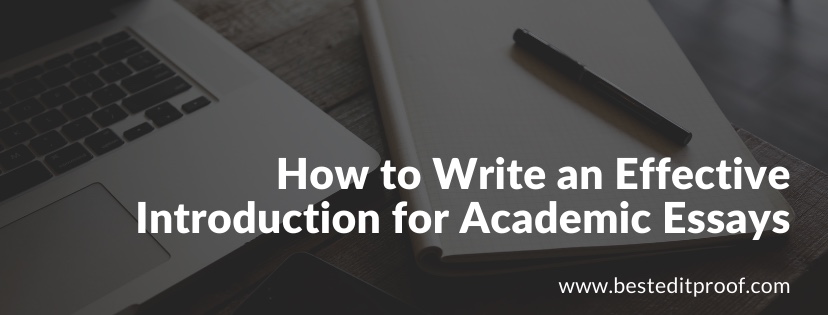Starting an academic study can be an overwhelming task. After all, it is a very systematic way of studying and involves many procedures and methods that you cannot skip or go around. One of the most prominent parts of research is the research methods that you adopt to get your results.

This article gives you a brief guide to understanding research methods in academic studies. To give you an opportunity to practice proofreading, we have left a few spelling, punctuation, or grammatical errors in the text. See if you can spot them! If you spot the errors correctly, you will be entitled to a 10% discount.
Starting an academic study can be an overwhelming task. After all, it is a very systematic way of studying and involves many procedures and methods that you cannot skip or go around. One of the most prominent parts of research is the research methods that you adopt to get your results.
If you are starting your research but are lost on that front, this article is all you need. Here, we cover all the types of research methods. After reading this article, you will be able to recognize which method is most suited for your study.
First, it would be better to understand what research methods are and why we need them. They are simply used to collect data for analyzing and deriving information from them. Therefore, the two most important parts of determining research method are to understand the following:
How will you collect data?
How will you analyze them?
Determining the research method is crucial to your research because without study data, your research will remain incomplete. Therefore, understanding how you need to collect and analyze your data is of importance.
Your research is centered around questions that you ask. The entire process involves trying to find answers to those research questions and coming to a concrete answer or solution.
For that, you need data that you can study and analyze. However, the way you collect data is a big constituent of how you want your research to proceed. There are various types of collecting data:
Primary and secondary methods
The primary method is the way of collecting original data. These data will come to you through forms, surveys, observations, and so on. Through this data, you will need to answer your research questions.
Whereas the secondary method includes collecting data that are not original. It means that these data already existed before or were used for research before by someone else.

For these research methods, you need to determine what kind of answer you are looking for. If you are looking for answers that you can represent numerically, you need to follow the quantitative method.
Otherwise, you will need to follow the qualitative method. At times, you may need to use both types of methods to find a precise answer to your questions.
The experimental method includes collecting data where you purposefully intervene with the subjects. You may control the variables and observe them in different situations. The experimental design will matter here. However, the descriptive method includes simply observing the subjects without trying to control the factors. Your sampling method is what will validate your research.
Again, your method for collecting data will determine how you can analyze your data. There are two methods for doing so:
Quantitative analysis
Quantitative analysis will help you numerically analyze your data, that is, through statistics and numbers.
Qualitative analysis
Qualitative analysis will help you analyze your data through words, ideas, observations, and experiences. It is more descriptive.
Both collecting and analyzing data are very important. However, you need to pay extra attention to editing and proofreading as these data will help you conclude. You need to be extra sure that your data is accurate. You may take help from professionals to edit and proofread your research and data so that you don’t make any errors.
Best Edit & Proof expert editors and proofreaders focus on offering manuscripts with proper tone, content, and style of academic writing, and also provide an upscale editing and proofreading service for you. If you consider our pieces of advice, you will witness a notable increase in the chance for your research manuscript to be accepted by the publishers. We work together as an academic writing style guide by bestowing subject-area editing and proofreading around several categorized writing styles. With the group of our expert editors, you will always find us all set to help you identify the tone and style that your manuscript needs to get a nod from the publishers.
You can also avail of our assistance if you are looking for editors who can format your manuscript, or just check on the particular styles for the formatting task as per the guidelines provided to you, e.g., APA, MLA, or Chicago/Turabian styles. Best Edit & Proof editors and proofreaders provide all sorts of academic writing help, including editing and proofreading services, using our user-friendly website, and a streamlined ordering process.
Visit our order page if you want our subject-area editors or language experts to work on your manuscript to improve its tone and style and give it a perfect academic tone and style through proper editing and proofreading. The process of submitting a paper is very easy and quick. Click here to find out how it works.
Our pricing is based on the type of service you avail of here, be it editing or proofreading. We charge on the basis of the word count of your manuscript that you submit for editing and proofreading and the turnaround time it takes to get it done. If you want to get an instant price quote for your project, copy and paste your document or enter your word count into our pricing calculator.
If you need support for editing and proofreading services, contact us. You can also e-mail us or use the 24/7 live chat module to get direct support. We have a 24/7 active live chat mode to offer you direct support along with qualified editors to refine and furbish your manuscript. Alternatively, you can text us through our WhatsApp business support line.
Follow us on Twitter, LinkedIn, Facebook, Instagram, and Medium.
For more posts, click here.
How to Determine Variability in a Dataset
14.10.2023
How to Determine Central Tendency
19.02.2023
How to Specify Study Variables in Research Papers?
14.01.2023
Population vs Sample | Sampling Methods for a Dissertation
14.01.2023
How to Ensure the Quality of Academic Writing in a Thesis and Dissertation?
04.12.2022
How to Avoid Anthropomorphism in Your Dissertation?
04.11.2022
How to Write a Research Methodology Section for a Dissertation and Thesis
07.08.2022
How to Write a Theoretical Framework for a Dissertation and Thesis?
05.08.2022
How to Write Literature Review for a Dissertation and Thesis
02.08.2022
How to Write a Dissertation and Thesis Introduction
31.07.2022

The successful manuscript submission can benefit in accelerating quick publication, the promulgation of your findings, and avoiding the chances of scooping. Plus, it provides a quicker return for you to start working on your next study. This article will guide you through 11 tips for successful manuscript submission.
Continue Reading
Writing an impactful introduction is more than just following the rules. If you search on the Internet, you may find stereotypical rules and regulations. However, it is important to understand that the author’s creative sense and ability to comprehend the topic helps in executing an effective introduction. This article discusses the major elements of writing an introduction and how you can write an impactful introduction.
Continue Reading
Writing a thesis can be an overwhelming task for many college and graduate students. Managing all the elements associated with a thesis while ensuring that the quality is not compromised can be challenging. However, what is even more strenuous is deciding on a thesis's layout. "How to structure a thesis" is a question that several final-year students struggle to answer. And understandably so, as all colleges and universities have their guidelines for drafting a thesis. However, there is an immutable structure that's common for every thesis. In this brief guide, we will take a look at this structure and analyze each of its components.
Continue Reading